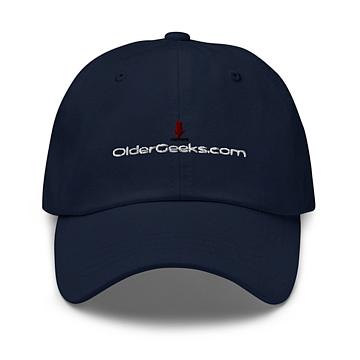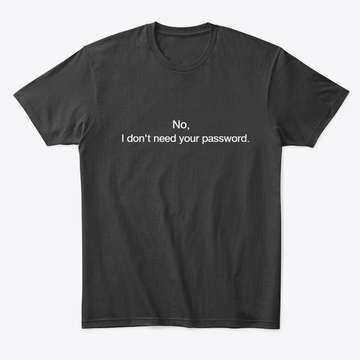A plea...
Deanna and I have been running this site since 2008 and lately we're seeing a big increase in
users (and cost) but a decline in percentage of users who donate. Our ad-free and junkware-free
download site only works if everyone chips in to offset the revenue that ads on other sites bring
in. Please donate at the bottom of the page. Every little bit helps. Thank you so much.
Sincerely,
your Older Geeks: Randy and Deanna
Always scroll to the bottom of the page for the main download link.
We don't believe in fake/misleading download buttons and tricks. The link is always in the same place.
DHCPLogView v1.00
Free tool that monitors DHCP requests sent by devices on your network and displays the info.
For every device that connects your network the following information is displayed: DHCP Request Time, MAC Address, MAC Address Company, Requested IP Address, Host Name, Vendor Class ID, User Class, PRL Bytes (Parameter Request List), and the operating system of the device (For common versions of Windows and Android)

System Requirements
Windows XP through Windows 11
Start Using DHCPLogView
DHCPLogView doesn't require any installation process or additional DLL files. In order to start using it, simply run the executable file - DHCPLogView.exe
Be aware that when you run this tool in the first time, the firewall of Windows operating system will display a warning and you need to allow this tool to access your network.
In order to verify that DHCPLogView actually works, you should simply connect one of your devices to your network. If the device is already connected, you have to disconnect it and then connect it again. You should immediately see a new line of the connected device in the main window of DHCPLogView.
While DHCPLogView is running you can use the following options:
Turn on the 'Put Icon On Tray' option, close the main window, and allow DHCPLogView to collect information about devices connected to your network.
Turn on also the 'Notification On DHCP Request' option in order to get notification every time that a device is connected to your network.
Select one or more devices, copy the devices list to the clipboard (Ctrl+C) and then paste them to Excel or any other application.
Use the 'Save All Items' option (Shift+Ctrl+S) to export the displayed devices to csv/tab-delimited/xml/html5/JSON file. You can also use the 'Save Selected Items' option to export only the selected devices.
Use the 'Clear All' option (Ctrl+X) to clear the devices list collected until now.
DHCPLogView Columns
DHCP Request Time: This column specifies when the device sent the DHCP request.
MAC Address: The MAC Address of the device.
MAC Address Company: The name of company/manufacturer of the device according to the MAC address.
Requested IP: The IP address that the device requested.
Host Name: The name of the device that sent the DHCP request.
Vendor Class ID: This string can be used to identify the operating system of the device. For example: the Vendor Class ID of Microsoft Windows is 'MSFT 5.0'. Be aware that some devices/operating systems don't provide this string.
User Class: The user class string of the device. It may contain additional information about the device. Only some devices provide this string.
PRL: Parameter Request List in the DHCP request. This sequence of bytes together with the 'Vendor Class ID' string can be used to detect the operating system of the device. You can find a long list of PRLs and Vendor Class IDs in the following Web page: https://github.com/daviswr/dhcpd.fingerprint/blob/master/signatures.md
Operating System: The operating system of the device that sent the DHCP request. DHCPLogView automatically detects common versions of Android and Windows. You can add support for more operating systems by using the dhcpos.txt file.
Detect more operating systems with dhcpos.txt
If you want to detect more operating systems, you can create a simple comma-delimited file named 'dhcpos.txt' and add to it the needed information to detect the desired operating system. You have to put this file in the same folder of DHCPLogView.exe
Here's an example for the dhcpos.txt file:
"1:f:3:6:2c:2e:2f:1f:21:2b","MSFT 5.0","Windows 2000"
"1:f:3:6:2c:2e:2f:1f:21:f9:2b","MSFT 5.0","Windows XP/2003"
"1:f:3:6:2c:2e:2f:1f:21:79:f9:2b","MSFT 5.0","Windows Vista/7/2008"
"1:f:3:6:2c:2e:2f:1f:21:79:f9:fc:2b","MSFT 5.0","Windows 8/10/2012"
"1:3:6:f:1f:21:2b:2c:2e:2f:79:f9:fc","MSFT 5.0","Windows 10/2016"
"1:3:6:f:1f:21:2b:2c:2e:2f:77:79:f9:fc","MSFT 5.0","Windows 10/11/2019"
This comma-delimited file contains 3 fields in every line:
1) The Parameter Request List (PRL). You can optionally omit this field by specifying empty string ("") and use only the Vendor Class ID.
2) The Vendor Class ID of the operating system. You can optionally omit this field by specifying empty string ("") and use only the PRL field.
3) The name of the operating system.
The following Web page may help you to find the PRL and the Vendor Class ID for the desired operating system: https://github.com/daviswr/dhcpd.fingerprint/blob/master/signatures.md
License
This utility is released as freeware. You are allowed to freely distribute this utility via CD-ROM, DVD, Internet, or in any other way, as long as you don't charge anything for this and you don't sell it or distribute it as a part of commercial product. If you distribute this utility, you must include all files in the distribution package, without any modification.
Disclaimer
The software is provided "AS IS" without any warranty, either expressed or implied, including, but not limited to, the implied warranties of merchantability and fitness for a particular purpose. The author will not be liable for any special, incidental, consequential or indirect damages due to loss of data or any other reason.
Feedback
If you have any problem, suggestion, comment, or you found a bug in this utility, you can send a message to support@nirsoft.net
This download is for the 64bit version (very bottom of page).
If you need the 32bit version, download here.
Click here to visit the author's website.
Continue below for the main download link.
|













 , out of 7 Votes.
, out of 7 Votes.
